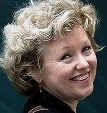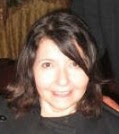
By Caitlin Rother
As the author of both fiction and nonfiction books, I thought that readers might be interested to hear how the writing process differs between the two genres, at least for me, and how I go about choosing the cases I feature in my books.
As the author of both fiction and nonfiction books, I thought that readers might be interested to hear how the writing process differs between the two genres, at least for me, and how I go about choosing the cases I feature in my books.
My true crime titles are Dead Reckoning, which went to a second printing in just two months; Twisted Triangle, which was the #1 true crime book on Amazon shortly after it came out in 2008; Poisoned Love, now in its seventh printing; Where Hope Begins, which is coming out in paperback as Deadly Devotion in June; and Body Parts. Naked Addiction, a thriller, is my only work of fiction so far. I’m currently working on a book about the John Gardner-Chelsea King-Amber Dubois case, The Makings of a Monster, which will come out next year.
Commercial fiction and nonfiction may be geared more toward entertainment purposes than their literary counterparts, but I try to incorporate some deeper messages into the stories I choose to tell. I’ve heard the opinion (from an attempted murderer, mind you) that true crime writers are “predators,” preying on the tragedy of families or glorifying violence. But those are certainly not my intentions. I believe I have a higher calling.
I choose the true crime stories that let me explore the psychological aspects of the human condition and illustrate the extremely important issues of life and death that we all share as well as the struggle to survive and recover from tragedy. Violent crimes can cause feelings ranging from betrayal and loss to utter devastation, not just to the victim’s family but to the killer’s family as well. I try to touch on these same psychological issues in my fiction, too. To me, all of this is just as meaningful and relevant to society, if not more so, than other genres that tend to get more respect from reviewers and society at large.
Some folks, including my former newspaper colleagues, have told me they liked my books, as if it was a big surprise, because they don't usually read true crime (as if it wasn’t worth their time). As a highly acclaimed literary fiction writer was signing a copy of his book for me, he said, “I love true crime!” As if it was his dirty little secret. The irony is that these books do sell, so somebody must be reading them!
With both kinds of writing, I find myself in "the zone" if I'm having a good day. (It’s much harder to write fiction in spurts because I lose my train of thought and forget where I’m going with the plot or a character's motivation.) Both forms of writing require a lot of thinking before I can even sit down at the computer. Deciding how to tell a story – what parts in what order – is always challenging.
Nonfiction can be more challenging because it requires so much research before I can determine the best way to present the information. It helps that I know where the story ends. With fiction, however, I often seem to end up somewhere other than where I'd planned – regardless of any outline I might draft – because the characters take over and go in their own directions. Some of them can be pretty headstrong, but that's how I get my twists and turns. Most of the twists aren't planned; they’re as much a surprise to me as they are, hopefully, to the reader.
Although I have published far more true crime books than fiction, fiction was my first passion, and is how I got started writing books in the first place. (It took me 17 years to get Naked Addiction published.) Growing up as an only child, I told myself stories, talked to myself in the mirror as different characters, and read lots of fiction and comic books to keep myself amused. Later, I added movies into the mix. I have always loved stories and storytelling.
I started writing fiction before I became a journalist, but it became more important several years into my newspaper career because it provided a creative and therapeutic relief from the daily grind of analytical thinking and fact-finding. I thought that after writing as many as four stories in a day I wouldn't have the time or energy to write at night or on weekends, but I was wrong. Writing fiction energized me, kept me up late at night, as the plot for what ultimately became Naked Addiction unfolded on my notepad. It was like a drug. From there, I learned to write narrative nonfiction – true stories that read like fiction, which combines the best of both worlds. After writing lengthy narratives for the newspaper, books were the natural next step.
As a result, the two writing forms have become symbiotic for me, i.e. my fiction writing has helped improve my nonfiction storytelling and my knowledge about homicide investigations has helped inform my fiction.
I find it fulfilling to explore a true crime case in such depth, to really probe the players about their investigative processes and strategies for trial, to go deep into the family backgrounds of both the victims and the defendant, and best of all, to learn about the evidence in such depth – usually in more detail than the jury ever knew.
Working on a constant deadline requires me to be extremely organized, planning the sequence of my interviews based on who or who may not want to talk to me and what I need to know before I can interview the next person. Sometimes you only get one shot at someone, and even if they say they'll talk to you again, they often change their mind. That's why documents and investigative reports are so important. My home office, my dining room table, and other nooks and crannies throughout my house become the repository for boxes, files, and stacks of paper. Let's just say I'm very thorough.
When each new book arrives at my house, there is nothing quite like the pride and accomplishment I feel as I hold it in my hand. Hearing from readers who were touched, moved or inspired by my writing makes it even more worthwhile, and with this blog, (and by teaching narrative non-fiction, creative writing and journalism at the University of California San Diego Extension), I can pass on what I’ve learned to others.
Caitlin Rother, a Pulitzer-nominee who worked as a investigativer reporter for nearly 20 years, is the author or co-author of seven books: Body Parts, Twisted Triangle, Naked Addiction, Poisoned Love, Where Hope Begins, My Life, Deleted, and her latest book, Dead Reckoning, which is available in bookstores now. For more information, please check out her website, caitlinrother.com.
Caitlin Rother, a Pulitzer-nominee who worked as a investigativer reporter for nearly 20 years, is the author or co-author of seven books: Body Parts, Twisted Triangle, Naked Addiction, Poisoned Love, Where Hope Begins, My Life, Deleted, and her latest book, Dead Reckoning, which is available in bookstores now. For more information, please check out her website, caitlinrother.com.












0 comments:
Post a Comment